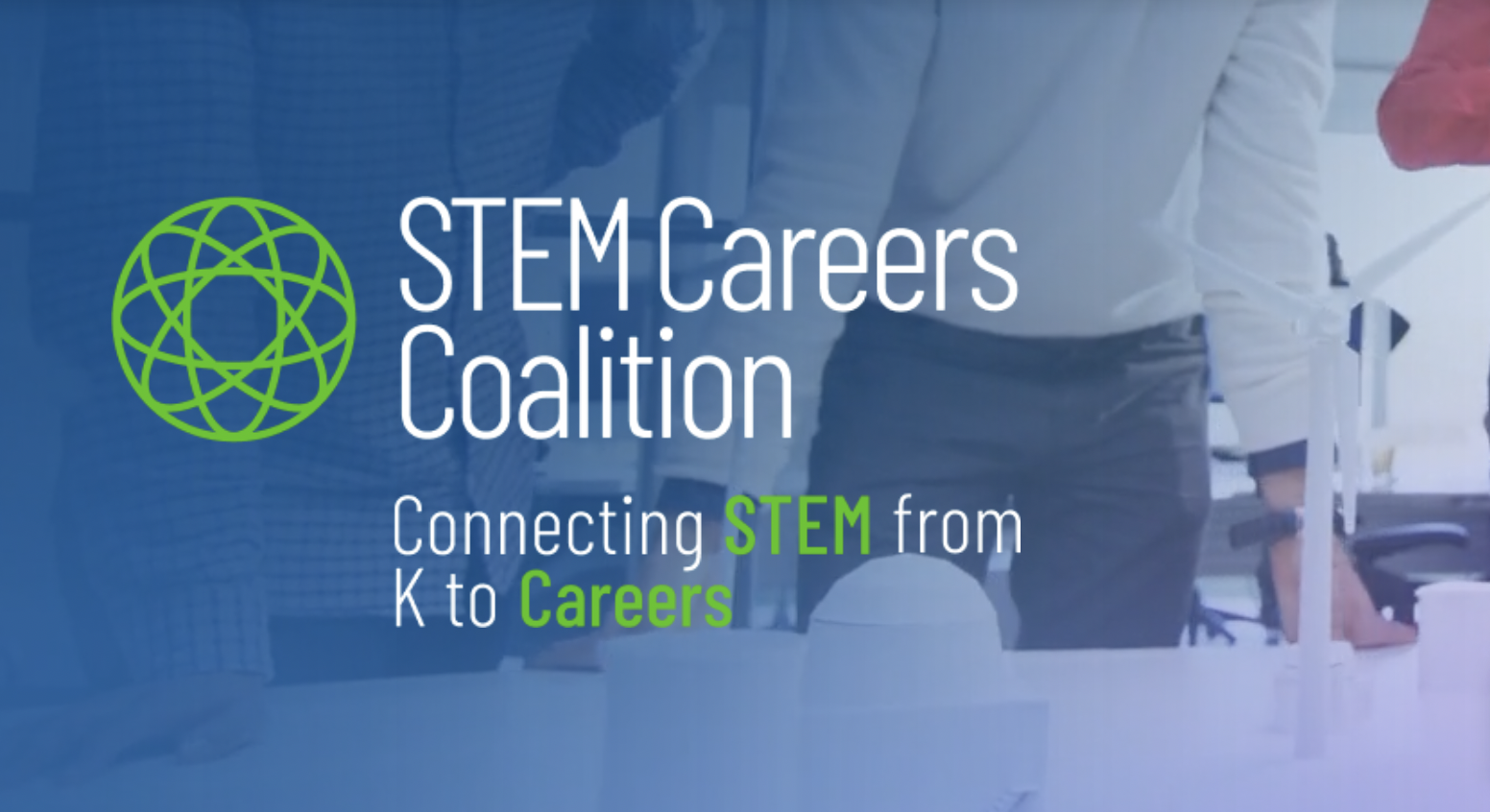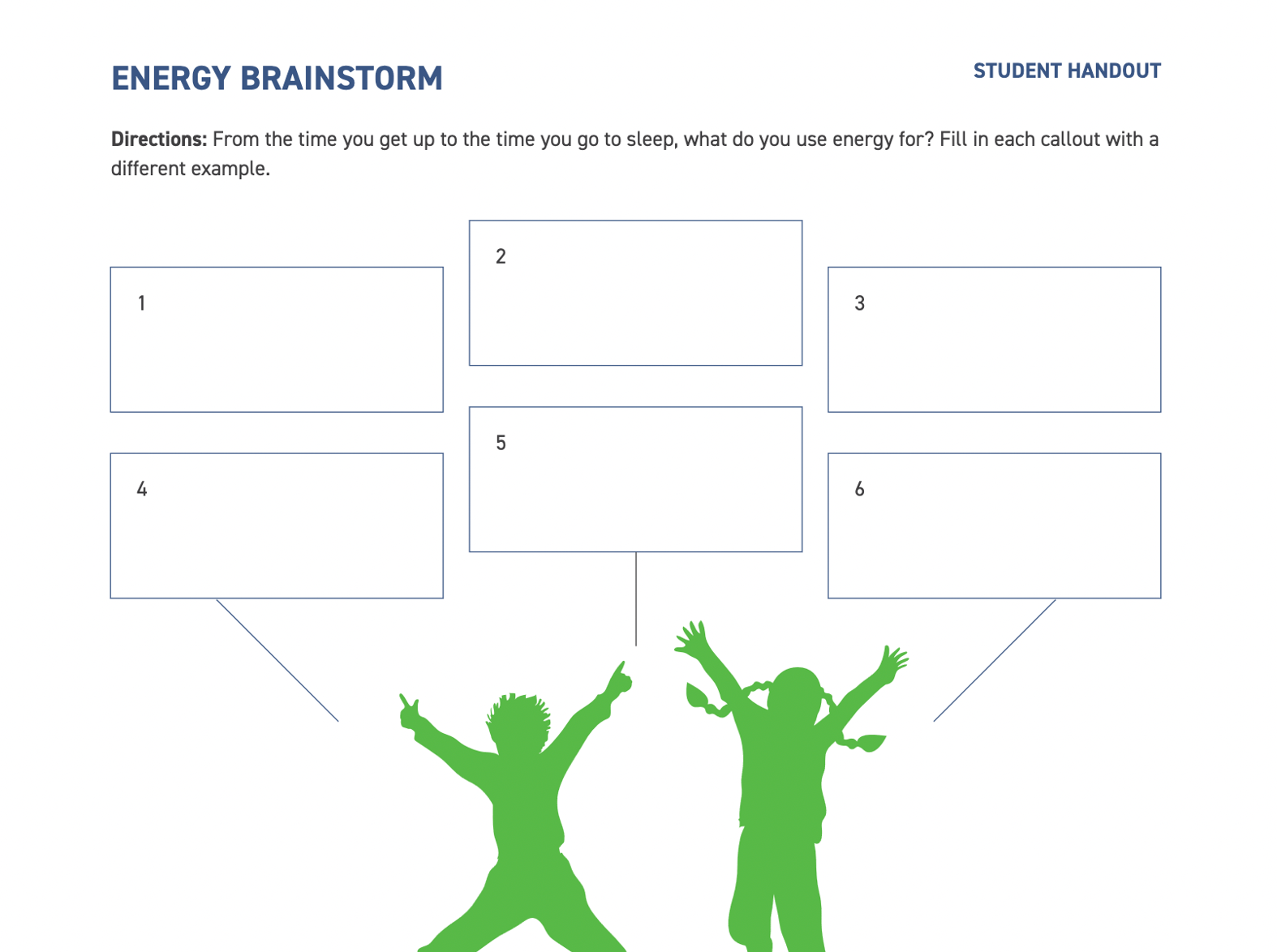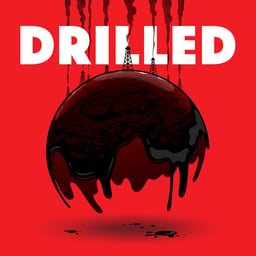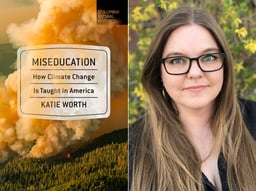
This story is being published in partnership with Rolling Stone, and was supported by the Pulitzer Center.
The lesson plan, which is intended for the 3-5 grade level, is titled “A Day Without.” It instructs teachers to explain to their classes how petroleum and natural gas provide most of the energy kids use in their day-to-day lives, from “charging my computer” to “making popcorn in the microwave.”
“Tell the class that in 2020, petroleum powered 90 percent of the country’s transportation,” the teacher instructions read. Nowhere does it mention how fossil fuel use is responsible for climate change, nor any mention of the global movement towards an energy transition.
At the end of the lesson, students are encouraged to either write an essay or create a drawing of life without natural gas and petroleum. “Now that you know where this energy can come from, imagine if these energy sources didn’t exist!” the handout reads. “What would your life be like?”
The “A Day Without” lesson plan is produced by Discovery Education, a popular national and international provider of digital textbooks and other multimedia content for K-12 students. Because it’s adorned with a version of the familiar Discovery logo (although no longer financially tied to Discovery Inc., which merged with Warner Bros. in 2021), several teachers told Drilled that they trust Discovery Education content across the board. This particular lesson plan is available for free on the Discovery Education website, and is also included in the paid digital curriculum platform the company sells to schools around the country.

A busy elementary school teacher might not notice the subtle logo at the bottom of the “A Day Without” lesson plan: the American Petroleum Institute (API), the oil and gas industry’s main lobbying organization, with a long history of promoting climate denial. API is a content partner for Discovery, and a founding partner — along with Chevron — of Discovery’s “STEM Careers Coalition” initiative, designed to help students build a career in science, technology, engineering, or math. The API logo dots several other lesson plans on the Discovery Education website, too, including an activity dissecting the use of petroleum-based polymers in chewing gum, an activity “exploring how offshore oil rigs are decommissioned and sunk to create artificial reefs,” and a lesson plan that has students assuming “the role of a petroleum geologist.”
American schools have long been a place where private influences, including fossil fuel groups like API, have pushed their messaging and advertised their brands. Yet the Discovery Education programming provides a remarkably efficient new model for companies to try and influence children. Through corporate-friendly programs like its STEM Careers Coalition, Discovery Education is able to distribute material branded by Chevron, API, DuPont, Boeing, and PepsiCo Foundation directly to millions of students via curricula, activities, and “virtual field trips.”
According to its website, Discovery Education materials are currently used by half of the classrooms in the U.S. Six states have provided Discovery Education curricula to some or all of their public school districts, paying millions of dollars for the privilege — or, in at least one case, allowing a corporate sponsor to foot the bill. The company is focused on growing its influence: Discovery Education has stated its intent to get its STEM-specific materials — which includes corporate-branded materials, like the API handouts — in front of at least 10 million children worldwide by 2025.
Discovery Education marketing materials claim that activities and lesson plans like “A Day Without” meet national curriculum standards, and none of the lesson plans reviewed by Drilled included any explicit climate denial. But the science is clear that the world must phase out the use of fossil fuels as quickly as possible to avoid the worst impacts of climate change. Experts say the lesson plans fit into a long history of API sneaking pro-fossil fuel industry messaging into schools.
“They’ve been at this since the ‘50s,” Robert Brulle, a professor at Brown University, said of API.
“There’s no balance” in the materials API created for Discovery, he added. “Completely missing is the impact of petroleum, on human health, on the Earth's ecosystem, or on climate. Just not there. They don't mention it. It's a selective education which, for me, makes this into propaganda.”
Drilled sent over a list of questions to Discovery Education for this story. Stephen Wakefield, the Senior Vice President of Global Communications, sent over the following statement in response:
“Discovery Education employs a rigorous process to review and select content that ensures only high quality, standards-aligned resources appear in our products. In addition, our flagship service includes a tool that allows school systems to exercise the highest level of control over their content, ensuring that the resources used in instruction meet local standards and approaches to learning. Thanks to the support of the STEM Careers Coalition, approximately 4,000 U.S. schools now have access to high-quality digital resources in all K-12 disciplines at little to no cost.”
API did not respond to our request for comment.
“Schools are sites of political struggle,” said Kenneth J. Saltman, a professor of educational policy studies at the University of Illinois Chicago. “API has a very clear agenda for what they want schools to teach, that is in accord with the interests and profits of their industries. And that’s not in line with the interests of the public generally — which includes the interest in surviving the next decade or two.”
WHILE DISCOVERY EDUCATION boasts a similar logo as the media company — which many teachers and parents associate with their own educational experience — it no longer has a direct relationship to the cable channel. What is now Discovery Education began as a company called United Learning, which produced “digital video content in core curriculum areas and educational prevention videos for the social sector” in the early 2000s. Discovery Communications bought the company in 2003, intending to combine its subscription services with the Discovery Channel School’s educational videos. In 2018, Discovery Communications sold a majority stake in Discovery Education for $120 million to private equity firm Francisco Partners; in 2022, another private equity firm, Clearlake Capital, acquired the majority stake.
In recent years, Discovery Education has branched beyond just educational videos to a wealth of paid and free offerings, including subject-specific math and science curricula. Its lead product is known as the Discovery Education Experience, a platform that provides access to lessons, videos, and other content for students, teachers, and families. Discovery Education claims that it now serves 4.5 million educators and 45 million students in more than 100 countries and territories.
The Covid-19 pandemic opened a new financial door for Discovery Education, as classrooms were forced to go online and federal money became available for schools to pursue digital alternatives to in-classroom learning. Arizona, Delaware, South Carolina, Nevada, New Hampshire, and Mississippi have entered into contracts with Discovery Education since 2020 to provide access to some of its products to all or some of their public school districts. These states have used federal stimulus funds — known as the Elementary and Secondary School Emergency Relief Fund, or ESSER, passed under the various acts created in response to the pandemic — to purchase Discovery Education products. (Discovery Education maintains an entire section of its website dedicated to helping prospective customers use these funds to pay for its offerings.)
Arizona, for instance, spent $6.5 million to provide teachers, kids, and families across the state access to Discovery Education’s platform as part of its ESSER spending to “bridge the digital divide and provide broadband access.” The Discovery Education buy is the largest purchase the state made in that category, which also allocated a comparatively skint $1.5 million to extend broadband access into the homes of students living in rural areas, and $853,000 for a laptop and hotspot sharing program in Phoenix. Mississippi, meanwhile, paid nearly $4.7 million to provide Discovery Education’s K-6 science curriculum to 103 of its 144 school districts, part of a larger $23.1 million ESSER spend on distance learning tools. (It paid about $7.9 million for a K-8 math program from Imagine Learning, and also bought access to a 7-12 grade science curriculum provided by edtech company Gale for close to $5 million.)
Individual districts in different states can also use ESSER funds to purchase Discovery Education products. A spokesperson for the Delaware Department of Education told Drilled that one of its school districts, Brandywine, was in the process of using ESSER funds to purchase one year of access to Discovery Education’s elementary school curriculum for $75,900. Even if states and counties don’t pay Discovery Education directly for its products, some education boards list Discovery Education as a valuable resource for free educational materials: California’s Department of Education, Missouri’s state website, and the Bureau of Indian Education all include links to Discovery Education on distance learning and electronic resource pages.
Some states, however, have found corporate funders for their curricula. Nevada’s Discovery Education platform is sponsored by Nevada Gold Mines, a subsidiary of international mining giant Barrick Gold Corporation. Chemicals giant DuPont, which is headquartered in Delaware, paid $1.5 million in 2021 for students in Delaware to have access to the platform for three years, a DuPont spokesperson confirmed to Drilled. According to a press release, DuPont’s gift to Delaware’s schools was “part of its commitment as the newest member of the STEM Careers Coalition” — one of Discovery Education’s most corporate-forward projects.
IN SEPTEMBER OF LAST YEAR, the Nevada Department of Education posted a screen-recorded video intended to walk teachers through STEM resources available on the Discovery Education Experience platform. In the video, a Discovery Education employee shows off the platform’s homepage, where a channel labeled “Nevada Gold Mines Career Profile Series” is displayed on the top row.
The employee clicks to a section titled “STEM Careers,” which brings up a list of videos, activities, handouts, and other information for students and teachers. A header and logo on the page announce that the platform is “powered by the STEM Careers Coalition.” The first module listed on the K-5 page is a video called “Manufacturing Metals,” which looks at metal alloys manufactured in industrial company Arconic’s “state-of-the-art” manufacturing center in Alcoa, Tennessee. According to federal filings, Arconic’s charitable arm paid Discovery Education $300,000 per year in 2021 and 2022 to be part of the STEM Careers Coalition.
“Here is where you’re going to find a wealth of STEM career explorations, different instructional activities — so much is going on in this space,” the Discovery Education employee says.
Launched in 2019, the STEM Careers Coalition states that its intent is to bridge “industry and classrooms at an unprecedented scale.” The site boasts that the resources are accessed by “6.7 million teachers and students,” with a goal of increasing those numbers to 10 million by 2025.
The site is awash in corporate logos. A section at the bottom showcases the Coalition’s current partners: DuPont, Boeing, PepsiCo Foundation, P&G, and chemicals giant LyondellBasell are all listed as “Signature Partners” of the initiative. On a separate page, the site also lists the initiative’s “Content Partners,” whose “expertise” is applied in creating STEM materials hosted on the site. Here, API joins Chevron and Canada-based power generator Capital Power, as well as the Manufacturing Institute, the nonprofit arm of the National Association of Manufacturers, a lobbying group that is a decades-long purveyor of climate denial.
Branding for corporate initiatives like the STEM Careers Coalition brings in big money for Discovery. Federal tax filings show that in 2022, Discovery Education received at least $3 million each year from the charitable arms of for-profit companies like tech giant Siemens, medical device producer Abbott, and agribusiness conglomerate CHS to create branded corporate educational content. (The amount of money earned from corporate partnerships is likely much higher than this: Many partners with logos on the STEM Careers Coalition website, including API, do not list Discovery’s programming on their tax returns, or do not have separate charitable arms with publicly available tax filings.)
The Manufacturing Institute included the STEM Careers Coalition in 2021 as part of a larger $2.7 million initiative to “hone STEM skills, introduce students to career pathways in manufacturing and clarify misperceptions about these careers.”
Materials created in the STEM Careers Coalition are available for free online on Discovery Education’s site. But as the Nevada teacher video shows, materials from the STEM Careers Coalition are also provided through Discovery Education’s paid platform, with corporate-sponsored content mixed in with unbranded lesson plans. Discovery Education did not confirm whether or not its platforms allow teachers, students or parents to filter out corporate-branded material.
A teacher wanting to avoid corporate branding or content may not have a choice. Controlling how much advertising is served to kids in classrooms is largely left up to school districts. While some districts, like San Francisco, have strong policies limiting commercialism in classrooms — including prohibitions on teachers using curriculum sponsored by corporations — most states and districts lack comprehensive guardrails.
“In general, there are not legal prohibitions on using taxpayer-funded schools to market to a captive audience of students,” said Josh Golin, the executive director of Fairplay, an advocacy organization dedicated to limiting the impact of commercial culture on children.
The STEM Careers Coalition and other branded Discovery Education products are just the latest iteration of corporate presence in classrooms. A company called Channel One, which launched around the country in 1990 and closed in 2018, gave classrooms free televisions in exchange for a captive audience of school kids who would watch a 12-minute news broadcast, including two minutes of ads, each day. At one point, the program’s broadcasts were shown in 12,000 schools across the country, reaching about a quarter of 6-12th grade students. (A 2006 study published in the journal Pediatrics found that the 7th and 8th graders surveyed remembered ads from Channel One broadcasts better than the actual news content.)
Golin said that the vast body of research shows that kids are developmentally not able to recognize various forms of advertising, including sponsored content, until they reach their teens. “When you have advertising in a classroom setting, you take away the one defense that they may have, which is the ability to turn it off or get away from it,” he said.
Not all of the content the STEM Careers Coalition provides is sponsored by a corporation. There are a variety of unbranded lessons, many on climate and waste-related topics, mixed in with the publicly-available content on the Discovery Education site: Teachers accessing the website can find lessons on irrigation systems, food waste, and even transportation emissions or the effect of climate change on health with no corporate logos attached.
But some unbranded content appears to still have a heavy corporate influence. One lesson plan teaching 6-9 graders the process of distilling crude oil makes no mention of API and has no logos attached on the bottom — yet instructs educators to show their classes YouTube videos made by API and have students visit web resources that were put together with support from the organization. (The name of the PDF for this lesson on Discovery’s site is “API_DistCrudeOil.pdf.”)
For decades, the oil and gas industry has run aggressive PR and advertising campaigns to sell its product as key to a modern life — and advertising to kids in schools was a core part of these campaigns. API has a history of creating a huge variety of pro-industry material to deliver to schools, including running an online energy education website through the early 2000s. As early as 1950, DuPont and API — now both Discovery Education STEM Careers Coalition members — collaborated on a film for children titled The Magic Barrel, which extolled the number of products that could be made with petroleum. The industry’s push was so intense that in 1965, a memo from an API Board of Directors meeting estimated that the organization’s educational materials were in use in 33,000 schools, or 78 percent of all secondary schools in the country.
Education was a crucial part of the oil and gas industry’s modern-day push to undermine climate science. In the late 1990s, API convened a group of industry interests to launch a public relations campaign to raise public doubts about climate science and undermine international action on climate change. In an action plan that was later leaked to press, API mandates the creation of a task force to distribute “materials that present a credible, balanced picture of climate science” to schools nationwide. One of the metrics of success for the industry’s effort, the memo reads, would be measuring the “number of school teachers/students reached with our information on climate science.”
Golin said that one of the few protections for kids from corporate material comes from the FTC, which requires the disclosure of sponsored materials, and that unbranded lesson plans that include corporate content could constitute an FTC violation. Because of the research showing that kids don’t understand how to process advertising, “from Fairplay’s perspective, disclosure with children isn’t effective,” he added.
Drilled did not find any lesson plans provided by the STEM Careers Coalition teaching the link between oil and gas extraction — the main activity corporate sponsors like API and Chevron appear to be preparing kids to do — and climate change. In contrast, one unbranded lesson, on petroleum and biofuels, instructs teachers to “tell the class what actions petroleum companies are already taking to increase their sustainability.”
Amy Westervelt contributed reporting to this story.







